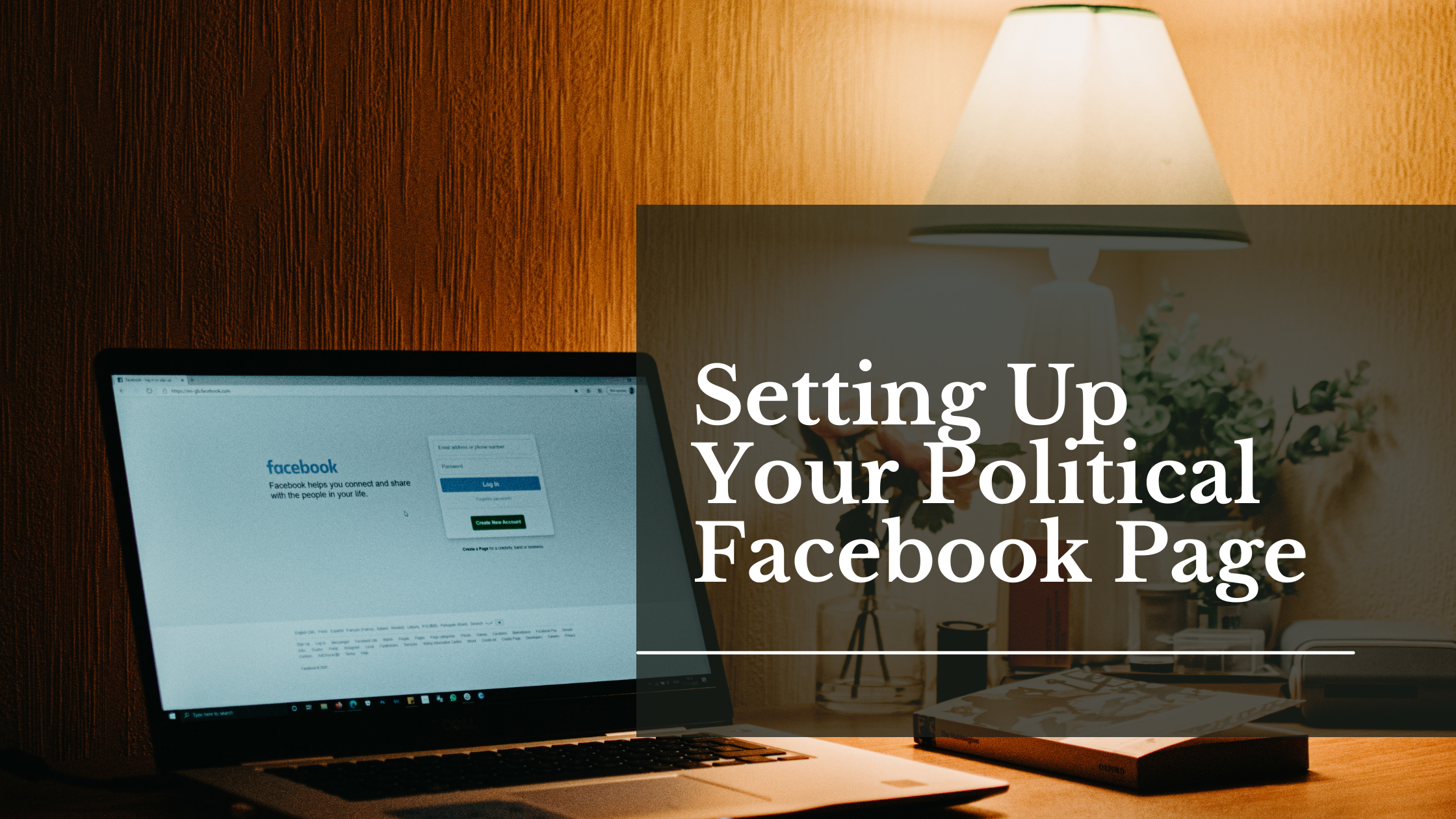Setting Up Your Political Facebook Page
One of the greatest methods to connect with voters, share your message, and build credibility online is to create a political Facebook page. Unlike personal or business pages, political pages must follow specific Meta standards to ensure transparency and compliance with advertising and election rules. You'll save time and avoid ad rejections later if you set it up correctly from the beginning.
1. Setting Up Your Page
Create your campaign page first using Facebook's Pages feature. Facebook generally recommends naming your page with your personal or campaign name rather than attaching specific years or positions. For example, “Jane Doe for Congress” is preferred over “Jane Doe for Atlanta Mayor 2021.” This approach makes your page more evergreen and easier to update for future campaigns.
When prompted, choose the category that best fits your purpose—"Political Candidate" or "Politician" are the most common. This step guarantees that your page is properly recognized as a political presence and that it complies with the applicable regulations.
2. Visual Identity and Branding
Once your page is created, focus on strong branding. Upload a high-quality profile picture, ideally a professional headshot or your campaign logo. Your cover image should showcase your campaign branding, community focus, or a meaningful motto. Together, these visuals help your page look legitimate and consistent across all campaign materials.
3. Building Trust Through Information
Next, add a brief biography, your mission statement, and your most recent contact details to your page's About Section. This is often one of the first places potential supporters check, so clarity and professionalism matter. A complete profile signals credibility and builds voter trust.
4. Adding Team Members
You don't have to handle the page by yourself if you have a campaign team. Facebook allows you to assign volunteers, consultants, or trusted staff members to positions like Administrator, Editor, or Advertiser. Sharing duties—such as publishing updates or running advertisements—without disclosing your login information is made simpler with this setup.
A well-structured political Facebook page not only enhances your campaign’s online presence but also ensures you remain compliant with Meta’s standards. By carefully creating your page, building strong branding, sharing accurate information, and managing access wisely, you’ll create a professional foundation for engaging with voters and supporters throughout your campaign.

